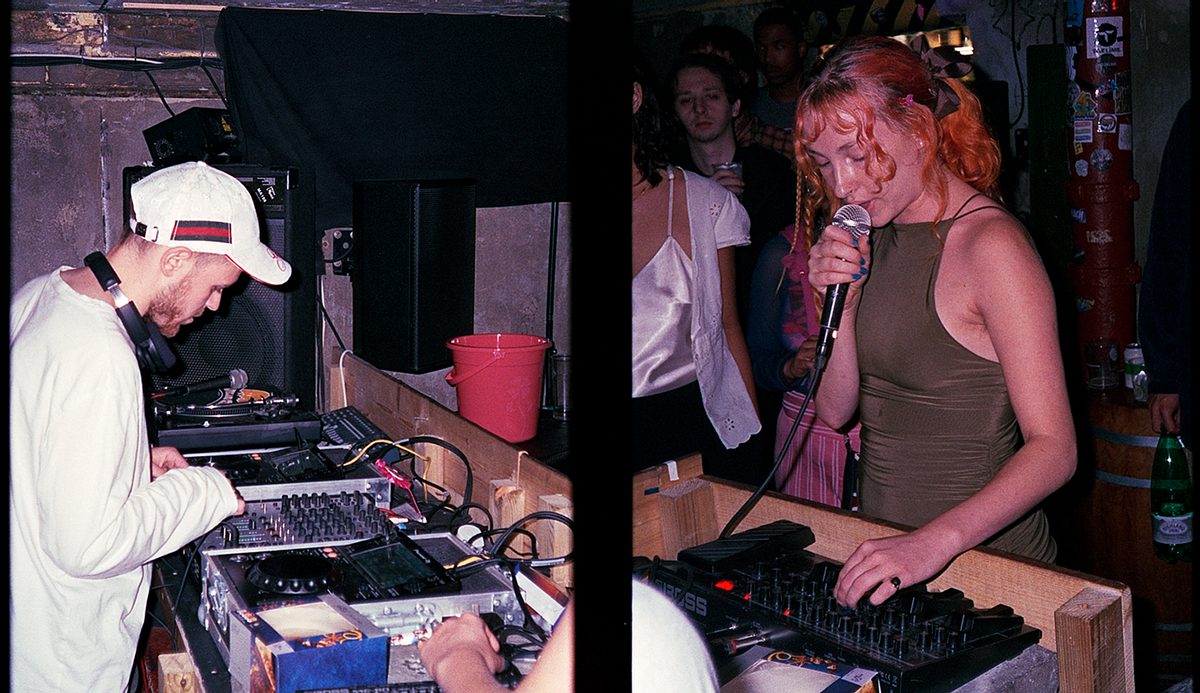Of Art and Labour:
Inside TT’s Curatorial World
‘We love to surprise ourselves, in a myriad of ways’, says Gribs, DJ and co-runner of London-based label TT (fka Tobago Tracks). ‘We’re getting a better sense of what function we want the label to serve…and what it can be both in the music industry and in the wider world.’
I met up with TT on a rather abnormal if exciting day at the office for them – it was the night of DJ Mag’s Best of British Awards 2019, for which TT had been nominated for best breakthrough label. They already had inklings (winners turned out to be Kiwi Rekords) but that didn’t curb their hopes or excitement – as they said, it was also, more than anything, a good opportunity to get together with the whole TT family before the end of the year. In the couple of hours we had before the label managers Gribs and DJ Pitch headed off to the awards, we ducked into a Turkish restaurant on Kingsland road in Dalston. It seemed like a timely occasion to look back over the past five years and acknowledge the label’s success. Over pitta and falafel, I sat down with Gribs and DJ Pitch for an in-depth discussion about TT’s genesis, future plans, and how modern listening habits have changed the way we consume music.
Managing to be spontaneous and yet fully focused, TT ride the sharp neon ley-lines that extend from the grubby heart of after-hours London to sonic scenes and dancehalls all over the globe. Home to artists including Organ Tapes, object blue, AF 85 and aircode, the label’s artists traverse genres from grime to ambient to experimental, but they all orbit around a shared love for the immersive and questioning side of music – from woozy fly-on-the-wall accounts to rapturous, out of body journeys. As a stellar end to the label’s prolific year, their latest release, Joanna Pope’s EP Fantasias for Lock-In, is testament to that. Steering listeners through discomfiting oscillations, the EP’s been described as an ‘eco-anxious variant of cheapcore and melodic noise’. It was Pope’s environmental and political commentary (she’s a researcher at the Berlin-based utopian conspirator/collective Trust) which first came up on TT’s radar, recalls DJ Pitch. ‘She runs a meme account @DegrowthMemes on Twitter, sharing memes based around the political concept of degrowth. Through that I found out about who she was, I looked at some of her work and was a huge fan. We discussed it and put it out for release – it was a fairly quick turnaround.’
Sometimes it’s these exciting conversations, a shot of inspiration from an unexpected avenue, which get the momentum going. Although TT typically work from a pre-planned release schedule – a system that’s been in place since early 2016 – they allow themselves the joy of spontaneity too. ‘I think it’s quite good to have that space open…I really like that instinctual feeling of “this is the one! Yeah!” adds Gribs, with infectious enthusiasm. ‘We deliberately leave gaps in the schedule for things to come up that we get really excited about very quickly, and when something like that happens, it can be flurried Whatsapps…and an essay can be left in the chat.’ By using Bandcamp and Soundcloud to platform their material, TT have the freedom to start working towards a release as and when they feel this spark. ‘Waiting a year is like being a vinyl label. We don’t need to press records and so can do things quickly’. But a quick release isn’t ideal for everyone. ‘Only if the artist is up for it’, cautions DJ Pitch. ‘They might only have been making music for a few months and it might put a lot of pressure on them and stifle the creative process.’
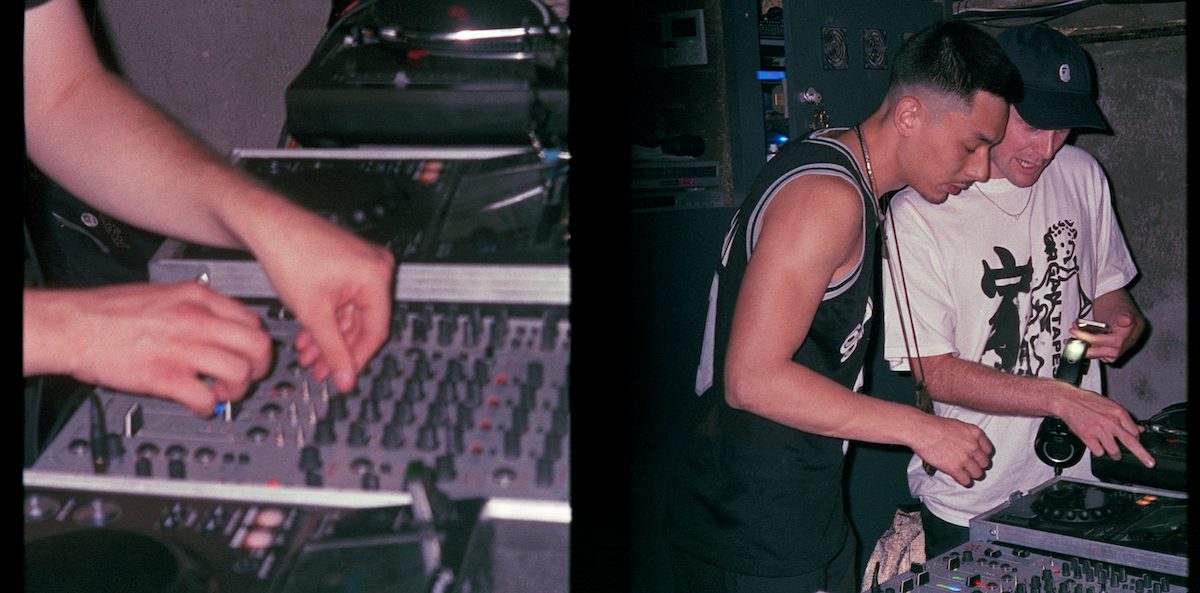
The pair impressively manage the label in between working full-time jobs and academic studies, so they admit they don’t often get to spend time with each other outside of their big annual meeting. ‘I started a degree [in architecture] at the end of last year,’ says DJ Pitch (who also runs a second label, All Centre), ‘and been working full time as well. The time pressure has been particularly heavy.’ Despite these challenges, both managers deeply value the continuous process of learning about the artist and their needs from a label. As Gribs underlines, ‘Once the release is over, we’re quite keen for that not to be the end. When we hopefully start to do more events, we really want to get everybody to do a live set at one of our events and keep it as a continuous thing.’
TT shapes and is shaped by a much wider narrative of continually evolving art and producers. ‘I think we’re really interested in the world around the label and all the artists that we work with and just making sure that continues to exist,’ adds DJ Pitch. ‘It’s a reciprocal relationship.’ The London-based producer Organ Tapes, or Tim Zha, (Texture’s Tom Graham chatted to Tim earlier this year) was one of TT’s first signings, and has since remained close to TT. DJ Pitch recalls his initial encounter with Organ Tapes’ work. ‘It blew me away…We met up at Corsica Studios, and started working on music together, which came out on one of the really early TT records. We then released Word Life in September 2015. So it’ll be 5 years this September. Not sure what we’ll do to celebrate…a slideshow of pictures!?’
By engaging with social networks and individuals on a human level, TT have been able to cultivate a space where like-minded artists can put forward ideas, collaborate and grow together with the label. ‘It’s quite a hard thing to do’, says Gribs, ‘but next year, it’s going to be a real focus of ours, to improve that area of it. Like we said, this year it’s been hard for even us to be in the same space, let alone give that for other people enough. But it’s really important for us moving forward.’
‘As the image and the role of a label in music changes’, adds DJ Pitch, ‘focusing on things like that is what is most important.’
With the increasing awareness around the underrepresentation of women and people of colour in electronic music, I wondered what record labels could do to help improve the situation to any extent, and put the question to TT. They took a moment to consider. According to Gribs, record labels should ‘know that you don’t know everything. Be willing to learn and improve how you’re going to make your label work for everyone – it’s a continual process, and you’ll learn by working with new collectives, reading about how other people structure their labels, and platform their artists. Being reflective. Sharing resources and contacts with people who need it.’ DJ Pitch agrees that an open policy of skills sharing and investing in newcomers will help shift inequality behind the decks. ‘I think if you are in a position where you’ve done things, you could provide support by using what you’ve learned to give the underrepresented those opportunities, stop people from making the same mistakes you’ve made.’ Party collectives such as Club Chai and Discwoman – both well-regarded for championing wxmen DJs and underrepresented narratives – have been hugely influential on TT.
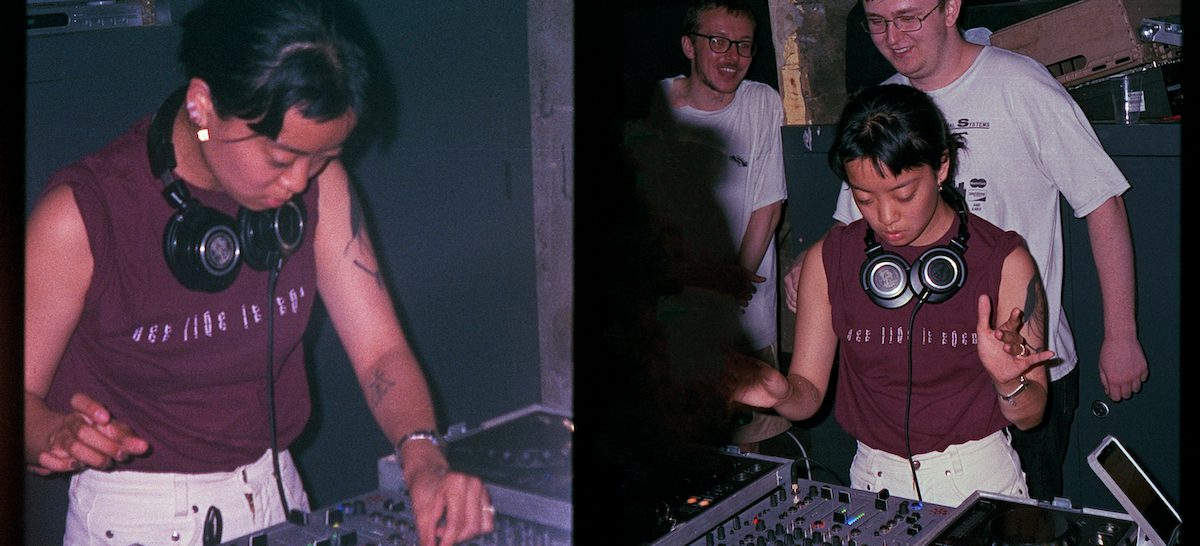
Bringing communities together around shared interests lies at the heart of the freewheeling ethos that TT has been building since 2013. ‘TT initially started as a party in Watford,’ DJ Pitch explains. ‘The motivation behind that – probably similar to being in Milton Keynes – was the fact that there was only one type of nightlife there. It’d be a lot of chart music, centred around two clubs…Oceana, Pryzm-style clubs.’ Both Milton Keynes (my hometown) and Watford are on the same train line into London – somewhat disconnected commuter towns where the lack of culture and events for young people so often become the impetus for DIY creativity. ‘There’s nothing wrong with those clubs – I’ve had some fun nights out with friends back home. But at the time there wasn’t anything else for us to do. There’d be a lot of fights, and we were never hugely into the kinds of music that you would hear. So we decided to set up something for people who had different tastes in dance/electronic music. We started off in clubs, then a bar. We struggled quite a lot with finding a venue, so eventually we left Watford. But in doing that, we started to bring together some like-minded people who had an interest at the time in labels like Nightslugs, Fade to Mind, Her Records and that sort of club music.’
‘From that we started doing radio; there was an online radio station in Watford that we started doing shows on, we set up a Facebook group where we shared tracks. That came together in the form of a label in July 2014.’ Many of those artists and creatives who were part of the close knit TT family from the beginning – though some are building offshoots elsewhere – now have established profiles in music. While they enjoy putting on events, and they have an unannounced one planned for next year (watch this space!), the releases are the ‘backbone’ and fibre of TT. ‘It’s what gives it all the energy’, says DJ Pitch. New music is what excites them the most – as DJs, producers, label heads and avid listeners.
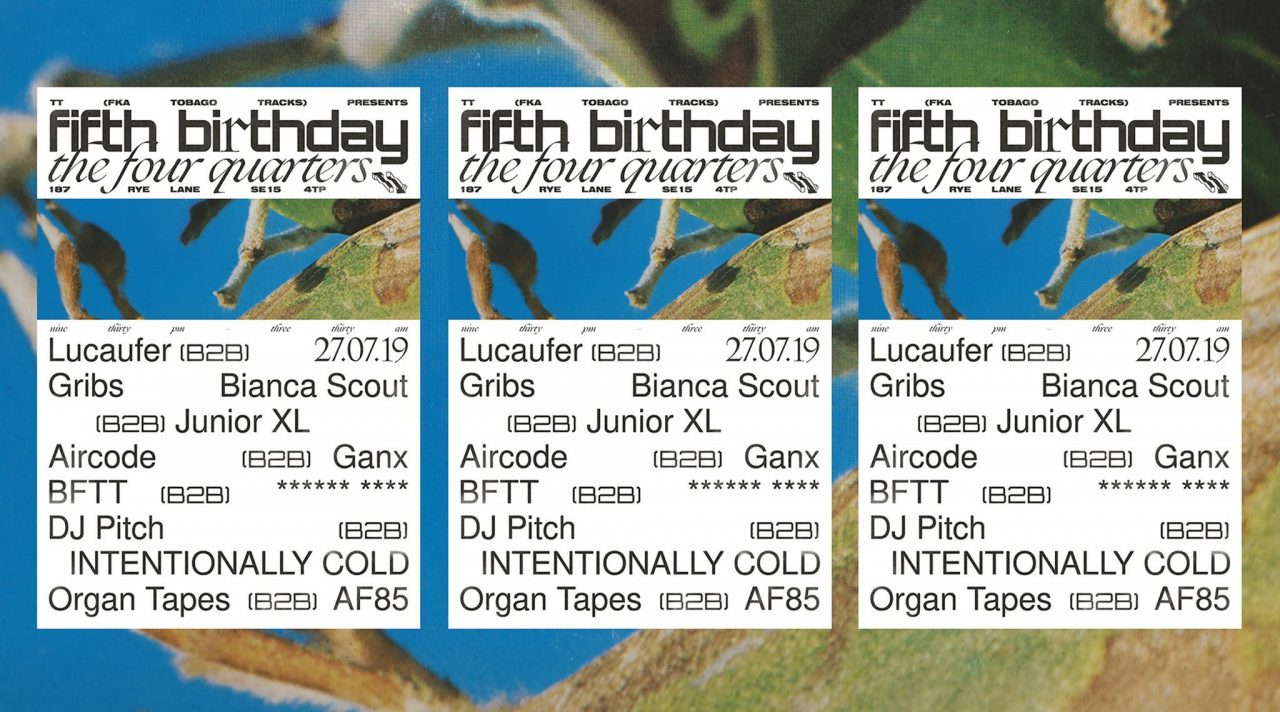
Our conversation veered towards the value of music labels today and their inspirations. Firstly, a label is a support system. ‘It’s knowing that someone wants you to make what you want on your terms. It’s really valuable,’ says Gribs, ‘especially if you’re a new artist. I think it does give you a boost of assuredness or a push to follow through on a project.’
‘Context is a huge part of what a label does’, they agree. ‘It brings artists into alignment with each other, who otherwise might not meet’ if you heard their tracks independently, says Gribs. This is reflected in TT’s chameleonic approach to signing artists: there is no “TT sound”. The label weaves together a diverse patchwork of artists who are themselves multi-faceted and transcendent of genre. ‘Sometimes I meet people and they’ll ask about TT, “what kind of label is it?” she continues. ‘It sounds corny but I don’t know what else to say apart from “everything will sound different.”’ For example, ‘if you heard a track by Symrun on a streaming site, and then the next track was by Bine, you might not immediately recognize them as occupying a similar musical space or having released on the same record label.’ It’s simply that fresh pair of ears – attuned to curating and collecting new unique sounds – which then enables emerging artists to develop their craft and find direction, DJ Pitch articulates. ‘Despite the fact that the idea around streaming is that everyone is their own atomised artist and they can create their own career by uploading to Spotify or YouTube, actually, artists can get quite isolated and not really have a sense of focus. Often, that music can’t really get anywhere because it can’t play into the metrics that are set up to help them succeed. Having a label that provides an alternative framework for that is really important – the encouragement that artists need to stay in their own lane and find an audience.’
While TT always strive to ensure they aren’t pigeonholing their releases into categories, the label also offers artists this framework to tie together the disparate, convention-swerving sounds within their roster. The artists don’t need genre tags, because ethos wise, they are all coming from a similar place. ‘Genre is really useful to describe practices and groups of practices’ affirms Gribs. ‘To say that “genre is fake” or people aren’t paying attention to it is not a useful statement. It affects so much: market segmentation, allocation of resources by genre. It affects where you end up.’ Reflecting on the current state of the now boundless and boundary-less music industry, DJ Pitch continues, ‘genre’s more useful than ever, because it’s clean, it allows a song or artist to be easily assigned to a playlist even if said playlist aims to provide a mood rather than a sound.’ Some record labels, such as Pitch’s other label, are interested in documenting the development of a certain sound, place or time; so for them, genre is a useful way of mapping emergent scenes. The limitations of labelling music by ‘genre’ is something I’ve always been conscious of as a music journalist, and so it was nice for me to think of it in this productive way.
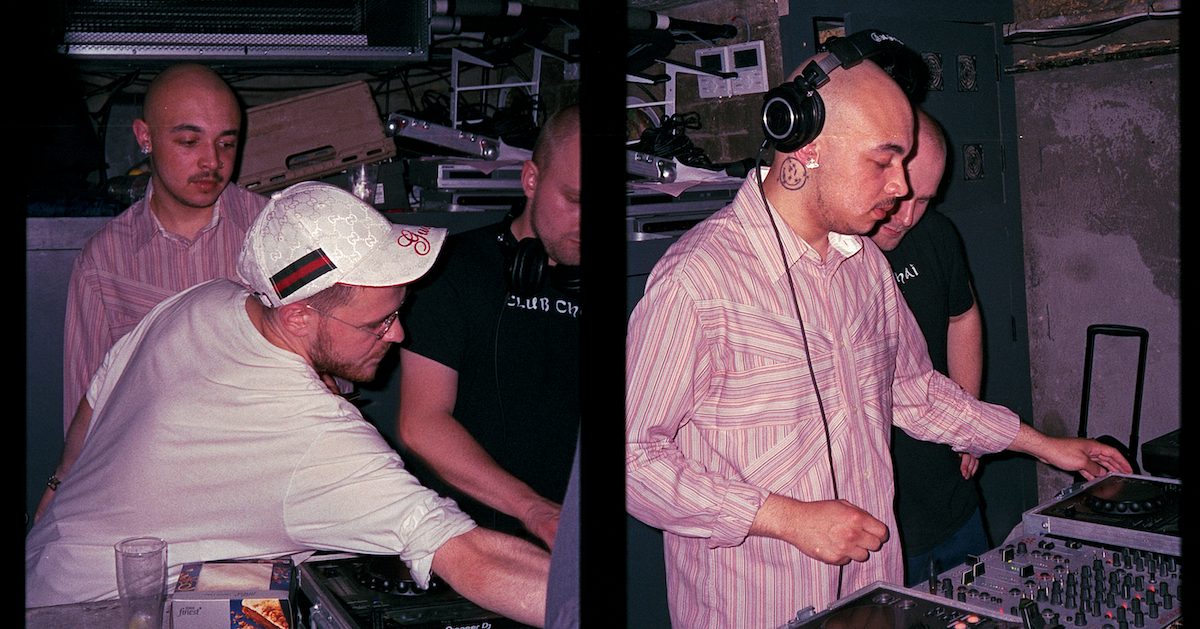
Artistic control is a really interesting topic in a world dominated by streaming. In an era of digital distribution, how can music labels help give full weight to the artist’s vision of how they want their music to be heard? We touched on JME’s new album, which you can only get on physical formats: CD and vinyl. His release embodies the idea that you should make music to be experienced by people in the way you want to make it, not in the way streaming sites mandate. Although Bandcamp doesn’t have the same payment structure as Spotify in how it remunerates artists, TT realise the value of offering more options when it comes to distributing artists’ work, beyond their main platforms Bandcamp and Soundcloud.
‘We’re trying to think beyond Bandcamp, so that it isn’t the only way we can present a release, and give the artist real say in the way that someone is going to experience their music.’ The managers mentioned PTP and Circadian Rhythms – who showcase clothing alongside music and video – as examples of concept labels who do this well. Gribs is wary that, while Bandcamp does let artists create their own online store, it still has its limitations; its format in some aspects still resembles a streaming site. ‘When you land on the page, there’s not that much we can change.’ She credits MySpace as having been more customisable than Bandcamp, when it comes to releasing: ‘You could at least make the background glittery and have your own cursor…imagine that, we could have a little TT cursor!!’ I was struck by both managers’ mindfulness around how they can make creative pursuits meaningful and sustainable for artists in a digital age.
This made me think about how listening habits have changed. Nowadays, with streaming, people aren’t often inclined or have the time to listen to an entire album from start to finish. I asked TT about this. ‘It’s becoming less significant to people,’ replies DJ Pitch, ‘but I think it’s really important. The track listing and the narrative of the album might be totally lost if you split that up. But I guess if you have a favourite track, then you’re going to listen to that more often.’ Take Spotify, DJ Pitch continues, ‘the thing that you’re promoted first is a playlist, right? Says it all really.’
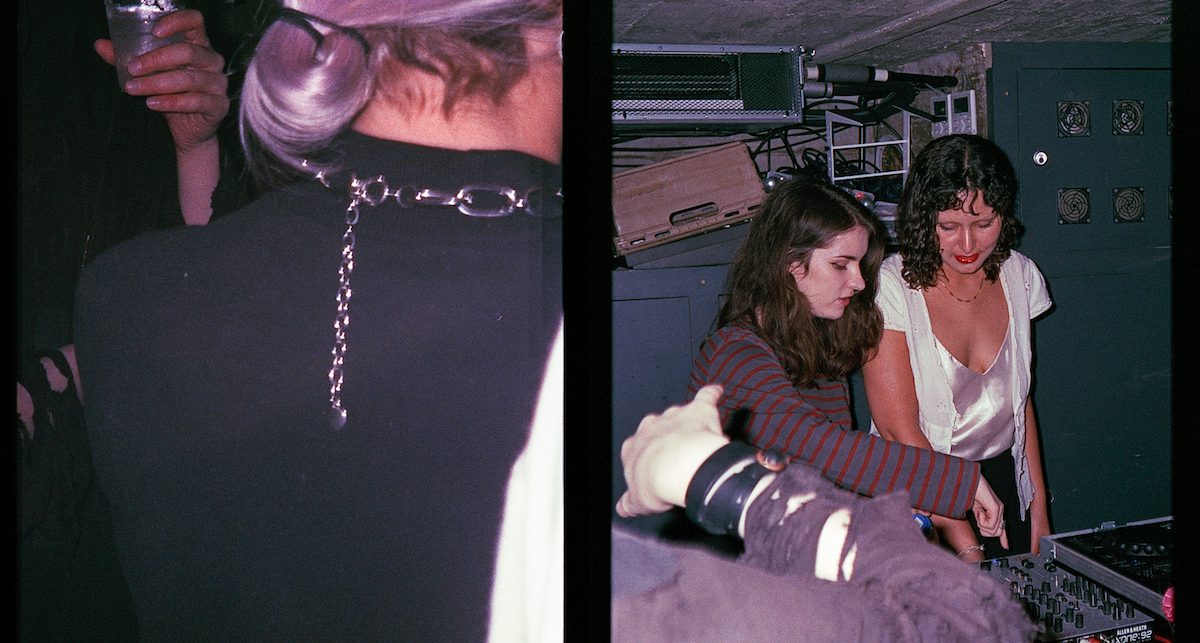
Towards that goal of better conveying an artist’s intention, TT shine a light on diverse forms of expression and don’t shy away from multi-media experiments. One of my first encounters with TT was through an album by Sheffield-based producer Symrun, entitled Care Work, which dropped earlier this year. His debut mixtape was released with an accompanying booklet detailing its musical and internet influences. It’s a beautifully rendered body of work. ‘I loved that release’, Gribs says enthusiastically. ‘Every time I feel a bit down, I think about the fact that that released happened this year and it makes me feel really good.’ The ten-track album totals around 15 minutes. ‘You can listen to it on a short walk and it’s like a shot of coffee.’
‘Because Symrun made all these different aspects to it – the podcast, the t-shirt, the booklet, the videos – it gave us so many different ways to introduce the music to people.’ Offering artists the freedom to innovate is a means of propelling the scope of the label forward too. ‘It lets people know who the artist is and how that relates to us as well, adds DJ Pitch, observing Symrun’s powerful connection between sonics and politics. ‘Symrun recorded a podcast for the four day working week campaign, which is something we believe in really strongly. I don’t think we would have ever had the reason – or thought – to do a podcast interview with Aidan Harper because we’re a record label. But through working with an artist on a project like that, all of a sudden you’re immediately able to do that.’
The collaboration with Symrun has impacted TT’s discussions about future releases. It’s led to more emphasis on offering artists opportunities to play with, or reorganise, different components within a release. ‘It’s been a really watershed release in terms of thinking about how we do things, because yeah, it was so much fun. It’s become a blueprint for how to release work.’ By having these multiple perspectives, Gribs continues, ‘it just gave Symrun’s release a whole new world of its own.’
Impacting choices from their day-to-day operations to wider questions about the label’s purpose and identity, TT’s influences come from all kinds of fields – politics, cultural studies, architecture and social housing. Gribs cites a lecture series Solvent Objects, which was held at Goldsmiths and was co-conducted by Dhanveer Singh Brar. Her vision for TT’s future has been deeply influenced by so many of the conversations which sprung from this – especially those with Kast, an artist who will be curating and managing TT alongside DJ Pitch and Gribs from next year. ‘Dance has been hugely influential; doing it, watching it. Music written for dancers is the best music,’ says Gribs. ‘Sometimes when I’m dancing, either at the club or when I used to in class, I wouldn’t know if I was enjoying the dancing more or the music. It’s really nice when you can’t tell the difference’. It reminded me of this bit in Robert Gallagher’s The Dancefloors of England, a book of poetry about music/dance spaces, where he writes: ‘[t]o become the dancers of a dubbed dissonance that loops around and around, until you cannot tell the dancer’s from the dance.’ Both Gribs and Pitch recommend the American podcast Art and Labor, which reflects on the inequalities affecting creatives and advocates unionisation within the arts. ‘Some of the ideas they explore are really useful in thinking about how to run a label and make the right changes to improve things for artists,’ DJ Pitch.
TT has flourished in the seismic shift that has occurred in the music industry over the last two decades, where the internet has opened up a rich, accessible space for buying, selling and distributing records. Through it all, the TT focus has remained squarely on spotlighting emergent and thought-provoking sounds, with the artists themselves in the driving seat creatively. Their goals are constantly evolving, whilst also embracing the really exciting or unknown things that could happen. As they understand more about their own aspirations for the label – which expands with their influences outside of music – they’re reaching out towards creating more events, alternate platforms and telling stories through multi-disciplinary artistry. For now, the future seems to rest on the infinite possibilities offered by this continual open dialogue with themselves and their collaborators – and what that means for the artistic expression of the label and the artists that orbit within it.

